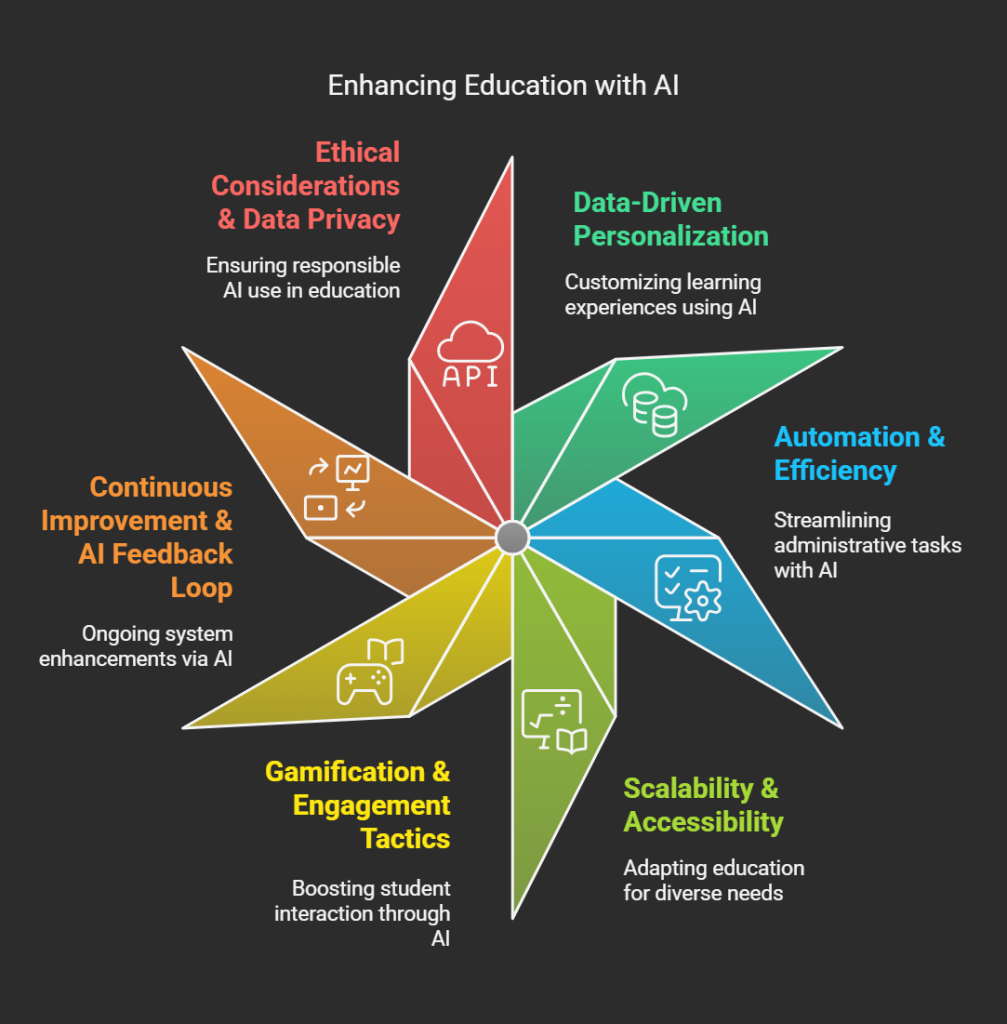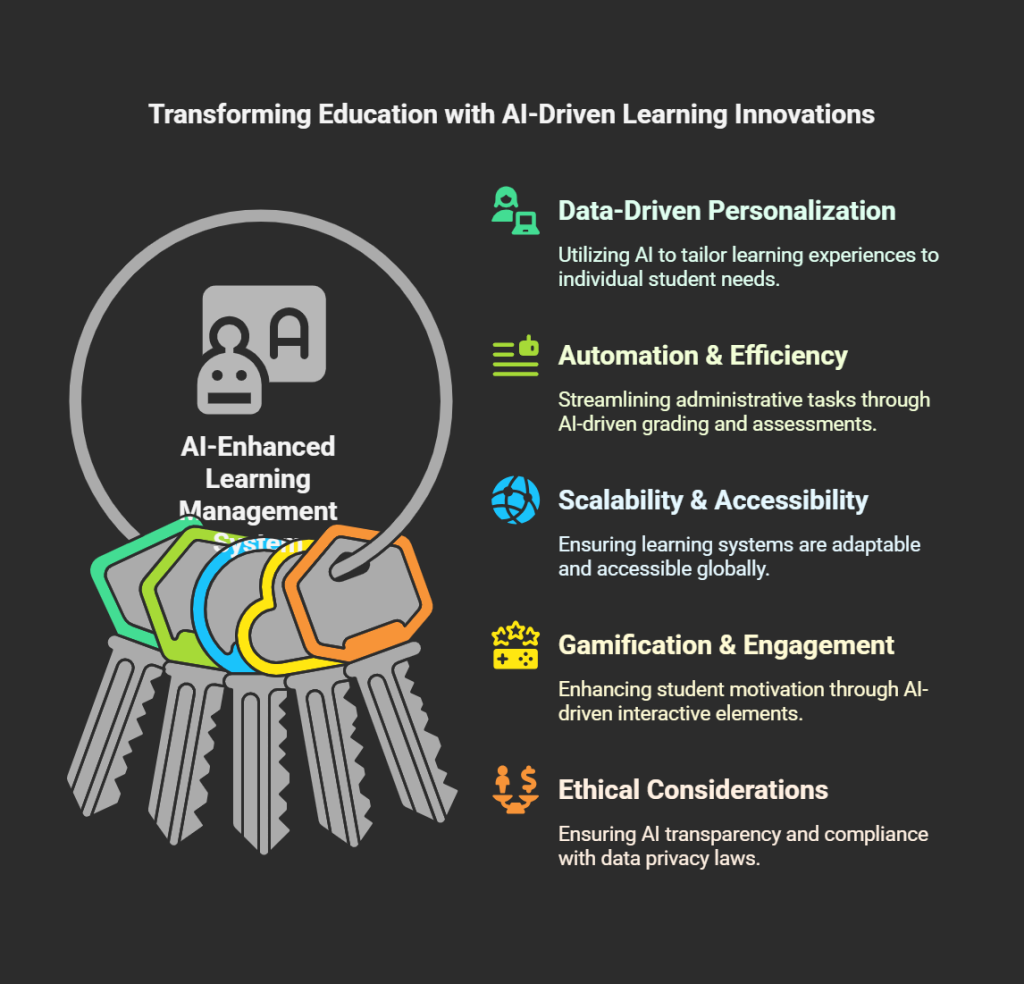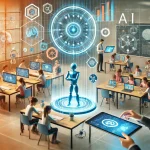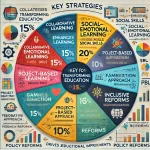Education is undergoing a radical transformation, driven by artificial intelligence (AI) and digital innovations. Traditional Learning Management Systems (LMS) often struggle to cater to diverse learning needs, leading to disengagement and inefficiencies. AI-powered LMS platforms bridge this gap by offering personalised learning experiences, automated assessments, and data-driven insights that enhance both teaching and learning processes. Research indicates that AI in education enhances retention, engagement, and academic performance (Mdpi, 2023). Institutions worldwide are adopting AI-driven LMS solutions to provide adaptive learning environments that cater to individual student needs (Springer, 2024).
This blog delves into the strategic importance of AI-driven LMS, supported by research, case studies, and real-world applications.
A Story of Transformation: The AI-Driven Classroom
Meet Emily, an eighth-grade math teacher who struggled to keep her students engaged. Traditional teaching methods and standardised learning modules left many of her students either bored or overwhelmed. That changed when her school adopted an AI-powered LMS.
The new system analysed students’ learning patterns, providing personalised recommendations and interactive quizzes tailored to their progress. Emily no longer had to guess which students needed help; real-time insights allowed her to offer precise support. Additionally, the AI chatbot addressed students’ doubts instantly, reducing classroom disruptions.
Beyond engagement, the AI-driven LMS played a crucial role in identifying learning gaps among students who might have otherwise slipped through the cracks. Students who previously struggled with foundational concepts received targeted remedial lessons, ensuring that no one was left behind. The system also introduced adaptive learning paths, allowing advanced students to progress faster instead of waiting for the rest of the class to catch up. This flexible structure increased student confidence and motivation.
By the semester’s end, Emily noticed remarkable improvements: increased engagement, better performance, and fewer students struggling with concepts. The AI-driven LMS had transformed her classroom into an adaptive learning environment that catered to every student’s needs, fostering both academic success and independent learning skills.
Key Elements of AI-Powered LMS
AI Integration in Learning Management Systems (LMS)
- Machine Learning for Adaptive Learning Paths: AI detects learning patterns and adjusts lesson difficulty accordingly.
- AI-Powered Recommendations for Personalised Content: Based on past interactions, AI suggests customised study materials.
- Chatbots and AI Tutors for Instant Student Support: These provide 24/7 assistance, answering common questions and guiding students through challenges.
- Data Analytics for Tracking Progress and Predicting Learner Needs: AI collects and analyses learning data, helping educators refine their teaching strategies.
Smart Learning Features
- Automated Grading and Feedback: AI speeds up evaluation, offering instant, detailed feedback.
- AI-Driven Assessments and Evaluations: Adaptive quizzes adjust difficulty levels based on student responses.
- Real-Time Performance Monitoring and Insights: AI helps educators identify struggling students early on.
- Smart Scheduling and Study Planning: AI suggests optimal study schedules tailored to students’ habits.
Tailored Content Delivery
- Personalised Learning Paths: Students receive customised lesson plans based on their pace and understanding.
- AI-Curated Content: Learning materials are adapted based on strengths, weaknesses, and preferences.
- Dynamic Content Updates: AI ensures content stays relevant and up to date.
- Multi-Format Learning: LMS platforms integrate videos, AR/VR modules, and interactive exercises for enhanced learning.
Enhancing Engagement Through AI
- Gamification & Interactive Learning: AI introduces leaderboards, challenges, and badges to make learning fun.
- Adaptive Quizzes and Simulations: Interactive elements increase student participation.
- AI-Generated Discussion Prompts: AI enhances collaboration by initiating thought-provoking conversations.
- Emotion AI for Tracking Engagement: AI analyses student emotions to adjust learning content accordingly.
Case Study: AI-Powered LMS in Higher Education
A university in the UK implemented an AI-powered LMS to address declining student engagement. The AI system introduced:
- Personalised learning paths tailored to students’ academic backgrounds.
- Chatbots for real-time support to answer questions and reduce reliance on faculty.
- Gamification features like reward-based quizzes and simulations.
- Data-driven insights to track student progress and identify learning gaps.
Beyond engagement, the AI-powered LMS also enhanced student retention rates. The university found that students who received timely interventions based on AI recommendations were less likely to drop out. AI-driven insights helped professors redesign course content dynamically, ensuring better comprehension and reducing failure rates. Additionally, the system’s predictive analytics allowed the institution to forecast student success rates, helping advisors intervene early and support at-risk students.
After one academic year, student engagement increased by 40%, dropout rates fell significantly, and academic performance improved across multiple disciplines. The university’s administration credited AI’s ability to create an adaptive and student-centred learning experience (Springer, 2024).
Strategic Key Points for Implementation with Solutions

How Can AI Improve Emotional, Psychological, and Social Learning?
- Emotional Intelligence Development:
- Solution: Emotion AI detects frustration or disengagement, offering personalised encouragement and adaptive learning paths.
- Benefit: Helps students develop emotional resilience and motivation.
- Psychological Well-being:
- Solution: AI-driven mental health chatbots provide students with guidance and stress-relief techniques.
- Benefit: Reduces academic anxiety and fosters a balanced learning environment.
- Social Collaboration Enhancement:
- Solution: AI-powered discussion forums suggest conversation starters and group projects based on shared interests.
- Benefit: Encourages peer interaction, collaboration, and teamwork skills.
Data-Driven Personalization
- Solution: AI-driven learning analytics leverage neural networks to assess learning behaviours, adjusting content dynamically based on user preferences and performance metrics.
- AI chatbots use natural language processing (NLP) to provide real-time academic assistance, reducing students’ dependency on instructors.
- Personalised learning paths enhance retention by adjusting difficulty levels and recommending supplementary materials in real-time.
Automation & Efficiency
- Solution: AI-based grading systems, powered by deep learning models, ensure instant and consistent assessment, reducing faculty workload.
- Progress tracking through predictive analytics enables early intervention strategies for struggling students.
- AI-powered scheduling tools optimise study plans by analysing time management habits and suggesting personalised study timetables.
Ethical Considerations & Data Privacy
- Solution: Transparent AI decision-making frameworks ensure fairness in grading and recommendations.
- Compliance with GDPR and FERPA is achieved through encrypted student data storage and ethical AI training.
- Institutions must implement strict access controls and anonymisation techniques to protect student identities.
Conclusion
AI-powered LMS platforms are reshaping education by making learning smarter, more personalised, and engaging. From automated grading to emotion-tracking AI, these systems optimise both teaching and learning experiences. Educators benefit from reduced workload and better insights, while students enjoy customised, engaging learning paths. Moreover, AI fosters emotional resilience, psychological well-being, and social collaboration, ensuring a holistic educational experience. Institutions must strategically implement AI in LMS to maximise efficiency, scalability, and ethical use, ensuring education remains inclusive and effective for all.
AI-driven education is a game-changer, offering personalised, efficient, and engaging learning experiences. It empowers educators with data-driven insights, automates routine tasks, and adapts content to individual learning styles. However, ethical considerations like data privacy, fairness in AI decision-making, and maintaining the human touch in education are crucial.

AI-powered LMS platforms are already proving their worth in improving retention, emotional intelligence, and collaboration. With continuous improvements, they will likely become an essential component of future education.
As technology advances, AI-powered LMS will continue to revolutionise education, making learning a more adaptive and personalised experience for students worldwide (Mdpi, 2023).
What are your thoughts on AI-driven education? Could your institution benefit from an AI-powered LMS? Share your insights in the comments!





